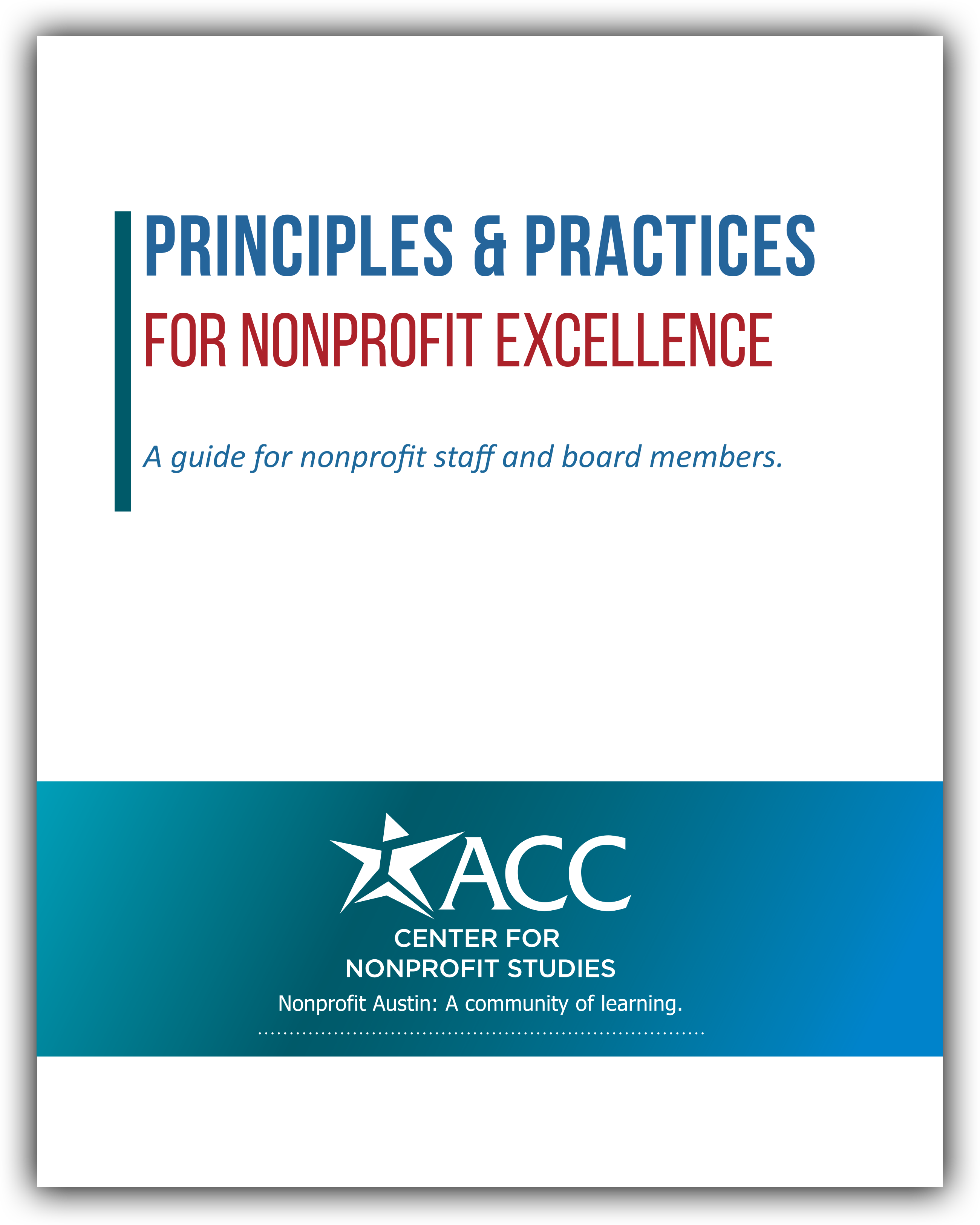
The continued success of Texas nonprofits requires broad public support and confidence. These principles and practices for nonprofit excellence seek to educate all engaged in nonprofit leadership and management as to their fundamental roles and responsibilities.
The 11 accountability principles described here differentiate the nonprofit sector from government and business sectors. The over 190 management practices provide specific guidelines for individual organizations to evaluate and improve their operations, governance, human resources, advocacy, financial management and fundraising. These are adapted to reflect the Texas Business Organizations Code.
While not intended as a substitute for the wisdom of directors of individual organizations, these principles and practices highlight the importance of nonprofit organizations’ commitment to public accountability and the processes necessary to be transparent in fulfilling their responsibility to the communities they serve.
Introduction
Every nonprofit organization needs a strong foundation of compliance and a broad organizational awareness of laws and regulations related to fundraising, licensing, financial accountability, human resources, lobbying, political advocacy and taxation. The Principles and Practices presume that each organization is in compliance with applicable laws, including the Texas Business Code, relevant sections of the Internal Revenue Code, and other federal and state laws dealing with employment, occupational health and safety. Texans join together throughout the state to form associations and organizations of every type. The Principles and Practices for Nonprofit Excellence are of particular interest to 501(c)(3) organizations. However, the information and concepts apply broadly to all types of nonprofit organizations. Because of the sector’s diversity by size, region and activity area, each organization must determine whether or not an individual practice is appropriate for its current situation.
Nonprofit organizations are essential to the vitality of communities. They enrich quality of life, epitomize the highest societal values and strengthen democracy. Volunteers, board members and employees become involved with a nonprofit because of the organization’s public benefit mission. Therefore the continued success of Texas’ nonprofit organizations requires broad public support and confidence. This document publicly testifies the nonprofit sector’s commitment to excellence — always for the benefit of society.
The critical role of nonprofits in democratic societies underscores the importance of knowing how to form, govern and manage these organizations. The growth and progress of the nonprofit sector depends on developing and improving this body of knowledge. Since its founding, the Center for Nonprofit Studies has provided education and assistance to strengthen nonprofit management and governance.
Information regarding Texas nonprofit regulations can be found in the Texas Business Code. Information regarding federal nonprofit regulations can be found on the Internal Revenue Service website.
 “Must” is used to describe practices required by stake or federal law, and is noted with a gavel symbol and highlighted in red.
“Must” is used to describe practices required by stake or federal law, and is noted with a gavel symbol and highlighted in red.- “Should” is used to describe highly recommended practices.
- “Constituents” describes people with a stake in the success of the organization and may include members, neighbors, clients, volunteers and contributors.

